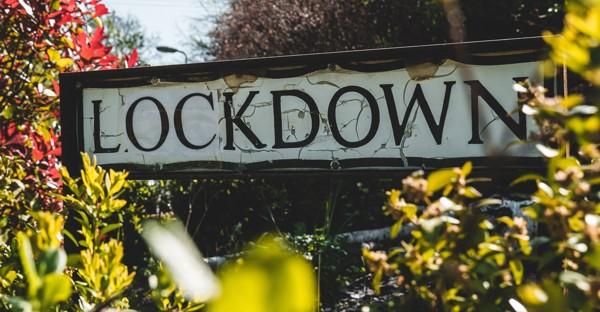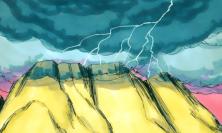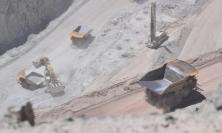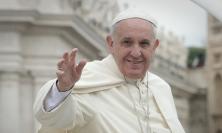The coronavirus pandemic is highlighting in a new and acute way the vulnerability of the human race, and our interconnection with one another and with other creatures, something of which the poorest communities in the world are already well aware. Celia Deane-Drummond of the Laudato Si’ Research Institute alerts us to the wake-up call that we are hearing to preserve and celebrate every part of our common home.[1]
This year was supposed to be a year of celebration in Rome, commemorating five years since the release of Laudato si’, the papal encyclical on care for our common home. However, instead of the gratitude that ought to have characterised the marking of that anniversary, the underlying public sentiment when witnessing the unfolding events first in China, then Italy, Spain and now the UK, USA and so many other countries, is panic, horror and anxiety.
Some reporters have tried to find examples of good news in order to lift the prevailing angst and heaviness. One is that stopping or drastically reducing flying and other activities does literally clean up our air. But before making too hasty a judgment about this, we must acknowledge that vulnerable, poor communities, such as those of the Pacific Islands, are losing their economic foothold as an indirect result of Covid-19. The very factors that lead to ‘ecological virtues’, such as halting the carbon footprint of global exchange, also open up other threats to the means of addressing basic human need. It shows how entangled our lives are and how extremely complicated it is to try and solve threats to our common home.
In the Western hemisphere, we have also largely forgotten what entanglement with other species means. Yes, we keep a pet dog or cat, or perhaps see an urban fox or mouse. But our interconnectedness is not just with the species that we encounter daily, but myriad creatures of the biological world of which we are part. What is significant in the case of Covid-19, like other new diseases of the last century such as SARS or HIV, is that it is zoonotic – it has jumped across a species boundary. Some scientists say it comes from bats, others from snakes, possibly through a mammalian intermediary like Malayan pangolins. Crowded ‘wet’ live animal markets are potential sources. Often these are illicit markets housing rare species or parts of species in some cases, as with the rhino horn, parts of some snakes or others thought to provide aphrodisiac potency to satisfy an ever-present market, including that in the Western world.
What is really surprising is that something like this has not happened on this scale before. The global market disrupts the delicate ecological balance and protection of species that often characterise indigenous communities living within fragile ecologies. There are political, social, moral and biological aspects to why Covid-19 has appeared on the global scene in the twenty-first century.
Much of the public ethical discussion about Covid-19 is about issues of justice. Who gets access to what has increasingly become a lottery in availability of healthcare, testing and personal protective equipment. Political experimentation costs lives. The most vulnerable suffer directly from this disease, but the indirect national and global economic and social impacts cut deep. Short of finding a cure or vaccine, social distancing or isolation is the only possible way forward. We are asked to remain distant. It’s a self-emptying sacrifice of love, reminiscent of Good Friday, that brings pain of absence – the pain of not being able to be present with those we love or even gather in communion for burial of the dead. Dying alone or with masked carers is not the kind of death any would wish for. It feels counterintuitive.
The more fundamental issue to consider is our common shared humanity, to which this pain points us. Evolutionary anthropology highlights our co-evolution with other species and our highly distinctive ‘hyper’ sociality. Cutting out the opportunity for that sociality is deeply disturbing for many people. But there seems to be no other choice.
Pope Francis argues in Laudato si’ that technology is a poor substitute for human relationships. He welcomes technology that is at the service of the common good, but not when it replaces social bonds. We are now finding the deep truth in what he says. Doing everything through FaceTime or other virtual tools is dissatisfying and feels odd to most people. We are now in a strange land, in spite of familiarity, where we cannot even properly weep and mourn with others. Even papal Masses and eucharistic communion, the liturgical highlight of the Christian year in the Triduum, and the material incarnate source of Christian life, are virtual. What are the spiritual lessons in this dark night, that the early mystics knew so well? The shadow of the empty tomb lingers.
So, can we still find a voice to sing praises, or would such a gesture be hollow in the wake of such an outcry of suffering? Kierkegaard believed that anxiety is the root of sin, and when we consider many aspects of this crisis, we can see that he was at least partly correct. It is from anxiety that politicians distort what is really happening in the public sphere; it is from anxiety that desires seem to be unsatisfied and solace sought in animal products; it is through anxiety that we remain paralysed in our everyday lives, uncertain what to do; it is through anxious desires to relax that we flout social distancing regulations. But a counter to such anxiety is gratitude. In Rome, nuns continue to sing the Divine Office from their apartments and others join in. In Madrid, every evening people gather on balconies to applaud health workers going into a night shift. In the UK, many thousands clap each Thursday evening for the NHS and social care workers. Various support groups have formed all over the world to help those who are housebound or self-isolating. Covid-19 has a relatively low death rate compared with many other parasitic relationships, so perhaps we also need to be grateful for that. Indeed, the most successful parasites do not kill their hosts.
Let’s also consider those millions of microorganisms living within us that help us stay healthy and live long lives. Not all microorganisms are parasitic; some are mutualistic. Our microbiome is complex. Further, let us consider those other living species who share our common home, and celebrate and protect the life and health that they and we have, while we have it.
We need to try and understand this virus as a newcomer in an existing panoply of creatures who are associated with us – some kill, yes, but many do not. We can mourn in deep solidarity with those who mourn, but anxiety will not help those left behind. The next time a cloud of anxiety rises up within us, let us reflect that the flowers, birds, trees and other living creatures around us even in an urban environment are not in lockdown. Stop to listen to the birdsong. Their praises cannot be stamped out, in spite of our mortality and disease. The Christian hopeful message of Easter cannot be suppressed. God’s grace is continuously at work in unselfish acts of self-emptying, love and sacrifice even in the midst of the pandemic.
Before we knew about evolution many theologians had trouble squaring belief in God with those creatures that seemed to us to be immoral or positively evil. But there is nothing explicitly evil about Covid-19. It is doing what it is made to do: multiply in its hosts, keeping many alive to pass it on to new hosts. It does not ‘intend’ to kill. We use anthropomorphic language of ‘battle’ and ‘starvation’ in our relationship with the virus as it helps us to deal with its dark and negative consequences on our lives. Rather like climate change, it is portrayed as a horrendous ‘natural evil’, but its impact is a consequence of our daily decisions and relationships, many of which may seem to us to be innocuous but have devastating consequences for other innocent parties. It is a moral, political and natural phenomenon, but also has theological meaning.
Covid-19 is teaching the human race important lessons that it first learnt in the crucible of its early emergence in deep time. Our lives are entangled with each other and with other species and this is the source of both our unique strength but also our vulnerability. We will best honour those who have suffered and died by learning to take our interconnectedness with God, each other, and other creatures much more seriously. Further, even the deepest and darkest suffering is not beyond the reach of God’s mercy and grace, thus providing an occasion for change and renewal.
Celia Deane-Drummond is Director of the Laudato Si’ Research Institute, Campion Hall, University of Oxford. Her most recent book is Theological Ethics Through a Multispecies Lens, Evolution of Wisdom Volume 1 (Oxford University Press, 2019); Shadow Sophia, Evolution of Wisdom Volume 2 (Oxford University Press, 2021), in press.
[1] I would like to thank Séverine Deneulin and Austen Ivereigh for helpful comments on an earlier version of this article.






